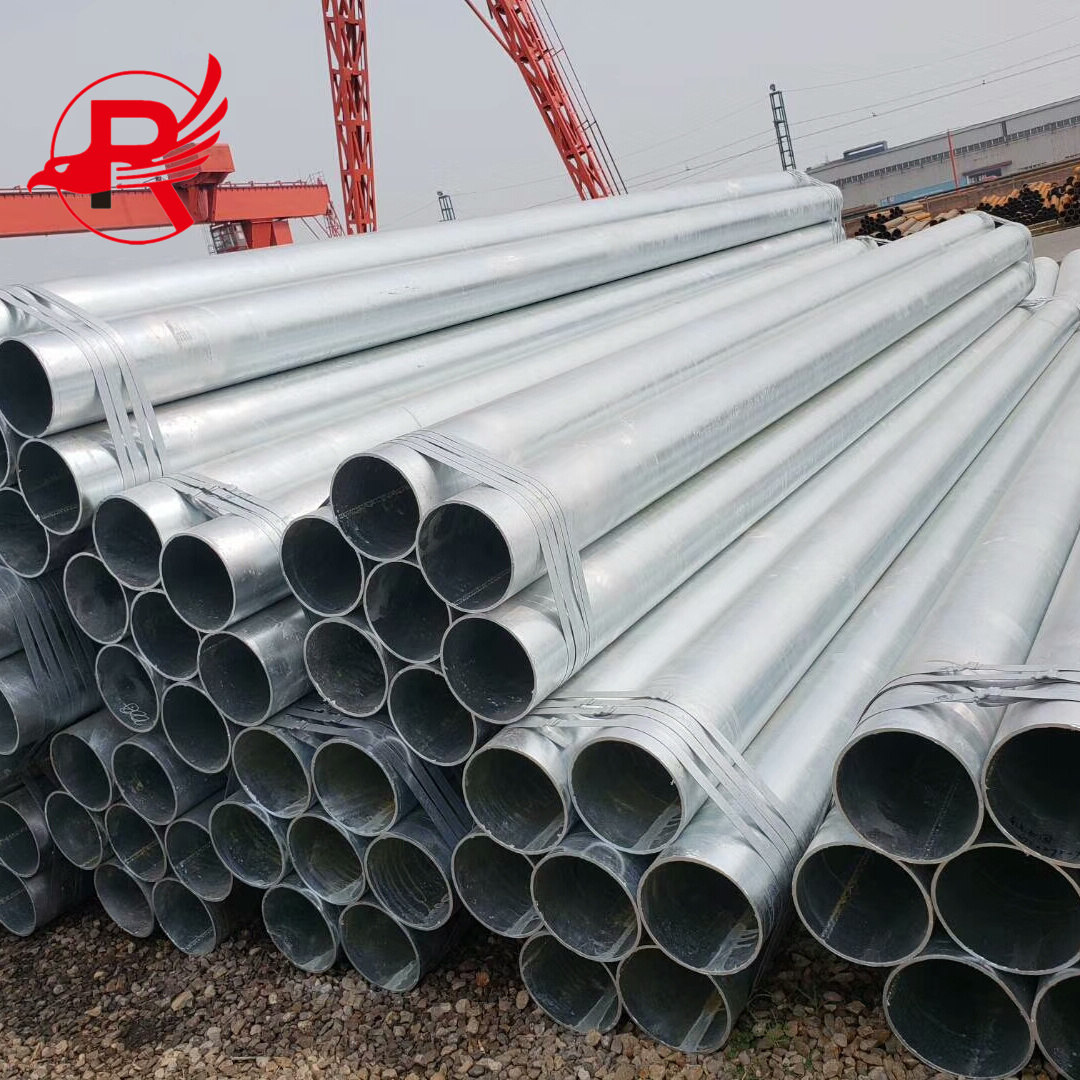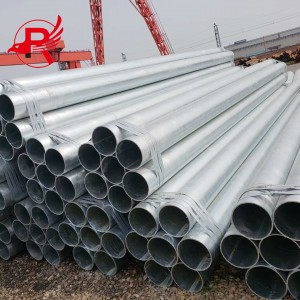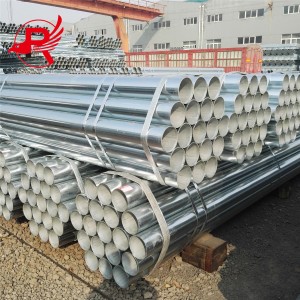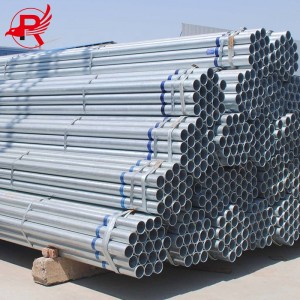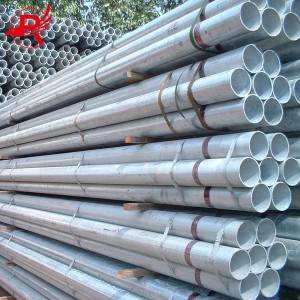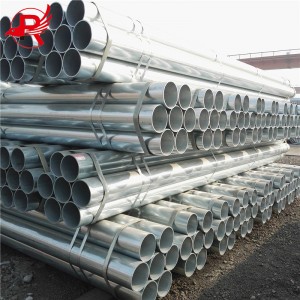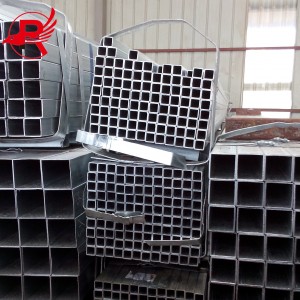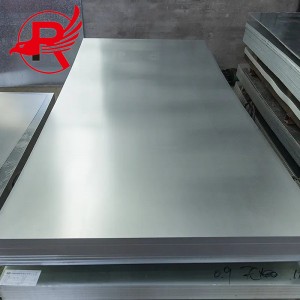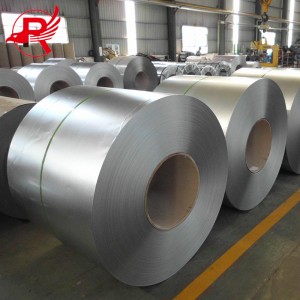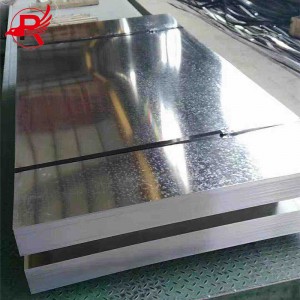Phepelo ea Fektheri e Otlolohileng ea Greenhouse Pre Galvanized Round Steel Pipe/Tube

Phaephe e chesang e qoelitsoenge entsoe ka karabelo ea tšepe e qhibilihisitsoeng le matrix ea tšepe ho hlahisa lera la alloy, e le hore matrix le coating li kopane tse peli. Ho chesa galvanizing ke ho qala ka ho pickling tube ea tšepe. E le ho tlosa oxide ea tšepe holim'a tube ea tšepe, kamora ho pickling, e hloekisoa ka tankeng ka ammonium chloride kapa tharollo ea zinc chloride kapa tharollo ea metsi e tsoakiloeng ea ammonium chloride le zinc chloride, ebe e romeloa ka tankeng ea ho betla e chesang. Ho chesa galvanizing ho na le melemo ea ho penta ka mokhoa o ts'oanang, ho khomarela ho matla le bophelo bo bolelele ba tšebeletso. Likarabelo tse rarahaneng tsa 'mele le tsa lik'hemik'hale li etsahala pakeng tsa motheo oa tube ea tšepe le bate e qhibilihisitsoeng ho etsa lera le kopaneng la alloy ea zinc-iron le hanyetsang mafome. Lera la alloy le kopantsoe le lera le hloekileng la zinc le matrix ea tube ea tšepe. Ka hona, khanyetso ea eona ea mafome e matla.

Likaroloana
1. Ho hanyetsa mafome: Galvanizing ke mokhoa o atlehang oa ho thibela mafome o sebelisoang khafetsa. Hoo e ka bang halofo ea tlhahiso ea zinki lefatšeng e sebelisoa ts'ebetsong ena. Zinki ha e etse feela lera le teteaneng la tšireletso holim'a tšepe, empa e boetse e na le phello ea tšireletso ea cathodic. Ha lesela la zinki le senyehile, le ntse le ka thibela mafome a thepa ea motheo ea tšepe ka tšireletso ea cathodic.
2. Tshebetso e ntle ea ho koba le ho tjheseletsa serame: e sebelisoa haholo-holo ka tekanyo e tlase ea tšepe ea carbon, litlhoko li na le ts'ebetso e ntle ea ho koba le ho tjheseletsa serame, hammoho le ts'ebetso e itseng ea ho hatakela
3. Ho bonahatsa khanya: E na le khanya e phahameng, e leng se etsang hore e be tšitiso khahlanong le mocheso
4, ho tiea ha seaparo ho matla, lera la galvanized le bopa sebopeho se khethehileng sa tšepe, sebopeho sena se ka mamella tšenyo ea mechini nakong ea ho tsamaisoa le ts'ebeliso.
Kopo
Phaephe e nang le galvanized e qhibilihisitsoeng ke mokhoa oa ho maneha lera la zinki holim'a liphaephe tse tloaelehileng tsa tšepe. Ka ho qoelisa phaephe ea tšepe ka mokelikeli oa zinki o qhibilihisitsoeng, ho thehoa lera le le leng le teteaneng la zinki, ka hona ho ntlafatsa khanyetso ea mafome le bophelo ba tšebeletso ea phaephe ea tšepe. Liphaephe tse nang le galvanized e qhibilihisitsoeng e chesang li sebelisoa haholo masimong a fapaneng.
Sa pele, lefapheng la kaho, liphaephe tsa galvanized tse nang le mocheso o chesang hangata li sebelisoa bakeng sa tšehetso ea meaho ea meaho le litsamaiso tsa liphaephe tsa kantle. Ka lebaka la ho hanyetsa mafome le ho hanyetsa boemo ba leholimo, liphaephe tsa galvanized tse nang le mocheso o chesang li ka sebelisoa bakeng sa liphaephe tsa kantle, li-handrails tsa litepisi, literei le likarolo tse ling. Li ka hanela lintho tse senyang moeeng ka katleho le ho lelefatsa bophelo ba tsona ba ts'ebeletso.
Sa bobedi, lefapheng la diindasteri, diphaephe tsa galvanized tse nang le hot-dip hangata di sebediswa ditsamaisong tsa diphaephe bakeng sa ho tsamaisa metsi, dikhase le dihlahiswa tse tala tsa dikhemikhale. Mohlala, diindastering tsa peterole, dikhemikhale, meriana le tse ding, diphaephe tsa galvanized tse nang le hot-dip di ka sebediswa ho tsamaisa mefuta e fapaneng ya diphaephe, mme ho hanyetsa mafome le ho hanyetsa mocheso o phahameng ho ka netefatsa tshebetso e bolokehileng ya tsamaiso ya diphaephe.
Ho phaella moo, lefapheng la temo, diphaephe tsa galvanized tse tjhesang le tsona di na le ditshebediso tsa bohlokwa. E ka sebediswa ditsamaisong tsa nosetso ya polasi, meahong ya tshehetso bakeng sa mechini ya temo, jj. hobane ho hanyetsa ha yona mafome ho ka hanela ho kgoholeha ha diphaephe ke dikhemikhale mobung.
Ka kakaretso, phaephe e tjhesang e nang le galvanized e na le ditshebediso tsa bohlokwa kahong, indastering, temong le mafapheng a mang. Ho hanyetsa mafome le ho hanyetsa maemo a lehodimo ho etsa hore e be e nngwe ya thepa e loketseng bakeng sa ditsamaiso le meaho e fapaneng ya diphaephe.

Liparamitha
| Lebitso la sehlahisoa | Phaephe e betliloeng |
| Sehlopha | Q235B, SS400, ST37, SS41, A36 jj. |
| Bolelele | Standard 6m le 12m kapa ho ya ka tlhoko ya moreki |
| Bophara | 600mm-1500mm, ho latela tlhoko ea moreki |
| Tekheniki | Hot qoelisoa Galvanizedphaephe |
| Sekoahelo sa Zinki | 30-275g/m2 |
| Kopo | E sebelisoa haholo mehahong e fapaneng ea meaho, marokho, likoloi, li-bracker, mechini jj. |
Lintlha tse qaqileng


Mealo ea zinki e ka hlahisoa ho tloha ho 30g ho isa ho 550g 'me e ka fanoa ka hotdip galvanizing, galvanizing ea motlakase le pre-galvanizing E fana ka lera la tšehetso ea tlhahiso ea zinki kamora tlaleho ea tlhahlobo. Botenya bo hlahisoa ho latela konteraka. Ts'ebetso ea k'hamphani ea rona mamello ea botenya e ka hare ho ± 0.01mm. Mealo ea zinki e ka hlahisoa ho tloha ho 30g ho isa ho 550g 'me e ka fanoa ka hotdip galvanizing, galvanizing ea motlakase le galvanizing E fana ka lera la tšehetso ea tlhahiso ea zinki kamora tlaleho ea tlhahlobo. Botenya bo hlahisoa ho latela konteraka. Ts'ebetso ea k'hamphani ea rona mamello ea botenya e ka hare ho ± 0.01mm. Nozzle ea ho seha ea laser, nozzle e boreleli ebile e makhethe. Phaephe e otlolohileng e otlolohileng e otlolohile, bokaholimo ba galvanizing. Bolelele ba ho khaola ho tloha ho 6-12meters, re ka fana ka bolelele bo tloaelehileng ba Amerika ba 20ft 40ft. Kapa re ka bula hlobo ho iketsetsa bolelele ba sehlahisoa, joalo ka 13 metres jj. 50.000m sa polokelo. E hlahisa ho feta Lithane tse 5,000 tsa thepa ka letsatsi, kahoo re ka li fa nako ea ho romella kapele le theko e qothisanang lehlokoa.





Phaephe e entsoeng ka galvanized ke thepa e tloaelehileng ea kaho 'me e sebelisoa ka mefuta e mengata. Nakong ea ho romela thepa, ka lebaka la tšusumetso ea mabaka a tikoloho, ho bonolo ho baka mathata a kang mafome, ho fetoha ha lintho kapa tšenyo ea phaephe ea tšepe, kahoo e bohlokoa haholo bakeng sa ho paka le ho tsamaisa liphaephe tse entsoeng ka galvanized. Pampiri ena e tla hlahisa mokhoa oa ho paka oa phaephe e entsoeng ka galvanized nakong ea ho romela thepa.
2. Litlhoko tsa ho paka
1. Bokaholimo ba phaephe ea tšepe bo lokela ho hloeka le ho omella, 'me ha hoa lokela ho ba le mafura, lerōle le lithōle tse ling.
2. Phaephe ea tšepe e tlameha ho tlatsoa ka pampiri e koahetsoeng ka polasetiki e nang le mekhahlelo e 'meli, lera le ka ntle le koahetsoe ka lakane ea polasetiki e nang le botenya ba bonyane 0.5mm, 'me lera le ka hare le koahetsoe ka filimi ea polasetiki ea polyethylene e bonaletsang e nang le botenya ba bonyane 0.02mm.
3. Phaephe ea tšepe e tlameha ho tšoauoa ka mor'a ho paka, 'me matšoao a lokela ho kenyelletsa mofuta, litlhaloso, nomoro ea sehlopha le letsatsi la tlhahiso ea phaephe ea tšepe.
4. Phaephe ea tšepe e lokela ho aroloa le ho pakoa ho latela mekhahlelo e fapaneng joalo ka litlhaloso, boholo le bolelele ho nolofatsa ho kenya le ho theola le ho boloka thepa.
Ea boraro, mokhoa oa ho paka
1. Pele o paka phaephe e nang le galvanized, bokaholimo ba phaephe bo lokela ho hlwekiswa le ho hlwekiswa ho netefatsa hore bokaholimo bo hlwekile ebile bo omme, e le ho qoba mathata a kang ho bola ha phaephe ya tshepe nakong ya thomello.
2. Ha ho phutheloa liphaephe tsa galvanized, tlhokomelo e lokela ho lefshoa tšireletsong ea liphaephe tsa tšepe, le tšebeliso ea li-splint tsa cork tse khubelu ho matlafatsa lipheletso ka bobeli tsa liphaephe tsa tšepe ho thibela ho fetoha le tšenyo nakong ea ho phuthela le ho tsamaisa.
3. Thepa ea ho paka ea phaephe ea galvanized e tlameha ho ba le phello ea ho se kenelle mongobo, ho se kenelle metsi le ho se kenelle mafome ho netefatsa hore phaephe ea tšepe ha e angoe ke mongobo kapa mafome nakong ea ts'ebetso ea thomello.
4. Kamora hore phaephe e nang le galvanized e pakoe, ela hloko setlolo se sireletsang mongobo le se sireletsang letsatsi ho qoba ho pepesehela khanya ea letsatsi nako e telele kapa tikoloho e mongobo.
4. Litlhokomelo
1. Sephutheloana sa phaephe e entsoeng ka galvanized se lokela ho ela hloko ho leka-lekana ha boholo le bolelele ho qoba tšenyo le tahlehelo e bakoang ke ho se lumellane ha boholo.
2. Kamora ho paka phaephe ya galvanized, ho hlokahala ho e tshwaya le ho e arola ka nako ho nolofatsa tsamaiso le polokelo.
3, ho paka ka phala ea galvanized, ho lokela ho ela hloko bophahamo le botsitso ba ho bokellana ha thepa, ho qoba ho sekamela ha thepa kapa ho bokellana holimo haholo ho baka tšenyo ho thepa.
Mokhoa o ka holimo ke oa ho paka phaephe ea galvanized ts'ebetsong ea ho romella thepa, ho kenyeletsoa le litlhoko tsa ho paka, mekhoa ea ho paka le mehato ea ho itšireletsa. Ha ho paka le ho tsamaisa thepa, ho hlokahala hore ho sebetse ho latela melaoana ka tieo, le ho sireletsa phaephe ea tšepe ka katleho ho netefatsa hore thepa e fihla ka mokhoa o sireletsehileng moo e eang teng.

P: Na ke moetsi oa UA?
K: E, re moetsi. Re na le fektheri ea rona e Tianjin City, Chaena.
P: Na nka fumana odara ea teko ea lithane tse 'maloa feela?
K: Ehlile. Re ka o romella thepa ka tšebeletso ea LCL. (Mojaro o fokolang oa lijana)
P: Haeba sampole e lokolohile?
K: Sampole ha e fumanehe, empa moreki o lefella thepa.
P: Na o fana ka khauta mme o etsa tiisetso ya kgwebo?
K: Re fana ka khauta ka lilemo tse supileng 'me re amohela tiisetso ea khoebo.


